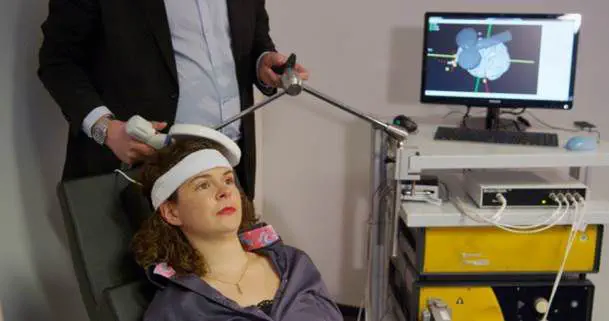Transcranial magnetic stimulation, which is commonly abbreviated to TMS, is stimulation of brain therapy treatment. It uses electromagnetic pulses that stimulate nerve cells.
The treatment treats depression, especially for people who don’t respond to psychotherapy and antidepressant medication. TMS may help other health issues, such as anxiety, obsessive-compulsive disorder, post-traumatic stress disorder, schizophrenia, Parkinson’s disease, and stroke rehabilitation. It could also help with addiction recovery.
How does TMS therapy work?
TMS therapy is an outpatient procedure that’s performed by a TMS physician or technician. It’s typically carried out at a medical clinic.
During your first treatment session, the technician, or physician will measure your head to determine where to put the magnetic coil and take other measurements to customize the settings on the TMS machine.
The magnetic coil will be placed above the front area of your brain. Releasing of Magnetic impulses will follow, and you will hear a clicking sound. You will also feel a tapping sensation underneath the magnetic coil.
Treatment sessions last between thirty and sixty minutes. You will need to have sessions five days a week over a period of around four to six weeks. The precise length of the treatment will depend on your specific condition and your response to the treatment.
TMS for Treating Depression
The primary use of TMS therapy is to treat depression. The reason TMS can help depression is that depression links to reduced activity in the prefrontal cortex, which is the area of the brain that’s responsible for symptoms of depression, such as low energy levels.
TMS can stimulate your nerve cells and increase activity in the prefrontal cortex.
The success rate of TMS for treating depression is certainly promising. According to the journal Nature, the positive response rates for treating depression with TMS are between 30% and 64%.
![depression [longevity live]](https://longevitylive.com/wp-content/uploads/2019/03/depression-despair-grief-897817-320x213.jpg) If you have depression, your doctor will probably recommend trying psychotherapy and antidepressant medication before recommending TMS.
If you have depression, your doctor will probably recommend trying psychotherapy and antidepressant medication before recommending TMS.
But if you have tried one or more antidepressants without seeing results or if you have experienced negative side effects while using antidepressants, TMS could be a great option to try.
Also, TMS can be even more beneficial to children and teenagers due to the fact that younger people are more prone to developing adverse side effects from using antidepressants.
TMS for Treating Addiction
As mentioned in the introduction, TMS could help people with addictions as well as people who suffer from depression.
If you suffer from such problems, you should find a local facility that provides TMS to explore your treatment options. For instance, if you’re looking for depression or addiction treatment in California, you can get TMS treatment from Roots Through Recovery.
While TMS can be helpful for treating addictions, it should be included as part of a broader addiction treatment plan that involves other therapies and medication.
Studies on TMS
According to a 2013 study published by the National Library of Medicine, TMS could help people with nicotine addiction to reduce their cravings via targeting the prefrontal cortex.
It’s believed that TMS promotes the release of dopamine, which is able to help reduce someone’s need for nicotine.
In another study, according to the U.S. Addiction Center, TMS could be effective in treating cocaine addiction.
The double-blind study saw 11 out of 16 cocaine addicts who received TMS therapy becoming free of their addiction symptoms after a period of only one month.
Out of the group that received standard treatment for cocaine addiction, only 3 people became free of addiction symptoms.
More studies are needed, but initial results for TMS as a treatment for addiction look promising.
Who is the author?
Nadine Westwood is a registered dietitian, travel blogger & fitness lover. In her spare time, she helps save stray animals. Nadine really does enjoy sharing her fitness journey with others who might need help with weight loss or finding a stress reliever.






![women [longevity live]](https://longevitylive.com/wp-content/uploads/2020/01/photo-of-women-walking-down-the-street-1116984-100x100.jpg)










